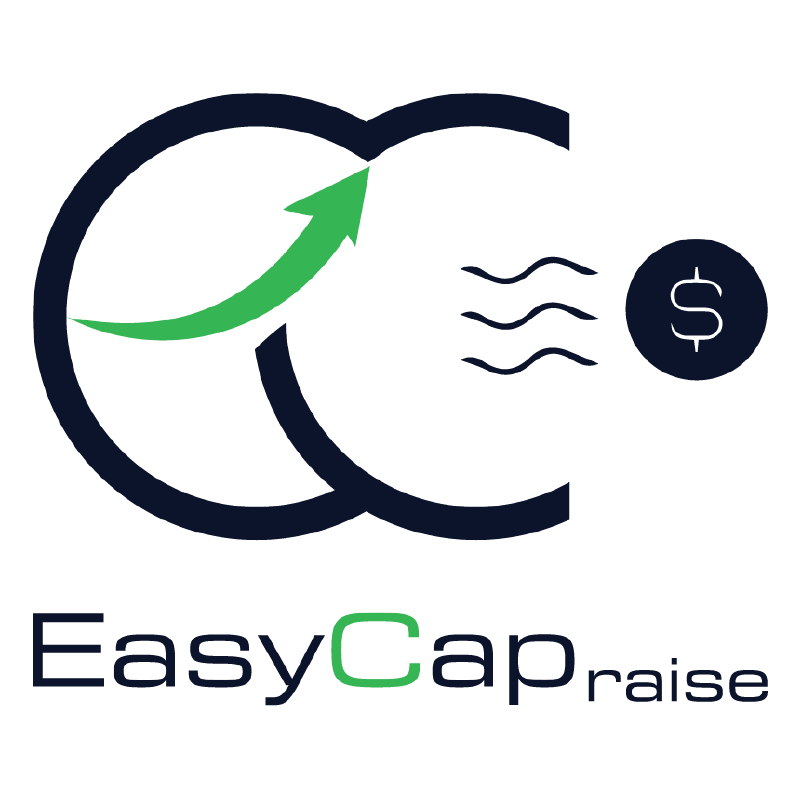Easy Capraise
Starting a business is an exciting journey. You have an idea that could change the world, but you need money to make it happen. This article will explain everything you need to know about startup funding, from the initial stages to the more advanced funding rounds.
What is Startup Funding?
Startup funding is the money entrepreneurs need to launch, grow, and sustain their businesses. This funding often comes from external investors who provide capital in exchange for company equity (ownership shares). There are two main types of startups when it comes to funding:
- Explosive Growth Startups: These startups aim for rapid growth and high valuations. Investors pour money into these companies, betting on their potential for massive returns through acquisitions or public offerings (IPOs).
- Lifestyle Businesses: These businesses aim for steady, sustainable growth. They may not seek external funding or aim for explosive growth but focus on profitability and independence.
This article will focus on the first type, the explosive growth startups, and how they raise funds through different stages.
Why Do Startups Need Funding?
Startups, especially those aiming for explosive growth, require significant capital to scale quickly. They need money to develop products, hire talent, market their services, and expand operations. This often means spending more money than they make in the early stages, which is why external funding is crucial.
The Funding Stages
- Pre-Seed Funding
Pre-seed funding is the earliest stage of funding. It’s used to develop and launch the initial product. This stage is often funded by the founders themselves, family, friends, or early-stage investors. The focus is on building the product and proving the concept.
- Seed Funding
Seed funding comes after the product is launched and starts gaining some traction. This round aims to accelerate growth and prove the business model. Investors in this stage look for early customer traction and the potential for scalability. Seed funding helps the startup refine its product, expand its team, and start generating revenue.
- Series A Funding
Series A funding is for startups that have achieved significant milestones and have a clear business model. At this stage, the company typically has over $1 million in annual revenue. Series A funding helps the startup scale further, improve its product, and expand its market reach. The pitch deck for Series A focuses on growth metrics, financial health, and future projections.
- Series B Funding
Series B funding is for companies in the $10 million revenue range. This round aims to take the company to the next level, expanding its market presence, improving its product, and potentially preparing for an IPO or acquisition. The focus here is on proving deep market understanding and showcasing strong financials.
- Series C and Beyond
Series C funding and beyond are for mature startups looking to expand even further. These rounds often involve significant investments and prepare the company for an eventual exit through an IPO or acquisition. The pitch decks at this stage are highly detailed, focusing on market dominance and long-term profitability.
How Funding Works
When startups raise money, they do so mainly in exchange for equity. This means giving up a portion of ownership in the company to the investors. The process involves creating new shares for the investors, which dilutes the ownership percentage of the existing shareholders.
For example, if a startup initially has 100 shares, and an investor buys 11 new shares, the total number of shares becomes 111. The original shareholders’ percentage ownership decreases, but the company’s value increases with the new investment.
Valuation
Valuing a startup, especially in the early stages, can be tricky. It’s often based on the perceived potential of the business rather than actual financials. According to an OpenVC report, seed valuations typically range from $3 million to $5 million.
- Example: Facebook
One well-known example is Facebook’s early funding. Peter Thiel invested $500,000 for 10% of the company, valuing Facebook at $5 million post-money. This meant the pre-money valuation was $4.5 million. The investment created new shares, diluting the ownership percentage of the existing founders but significantly increasing the company’s capital.
Do you want me to calculate quickly?
You want to try our calculator and expand its functionality
Startup Funding Explained2

The Challenges of Startup Funding
Raising funds is challenging. Founders often face dilution, losing control over their company as they issue more shares to investors. This means they might own less than 50% of the company after several rounds of funding, giving investors significant influence over company decisions.
Another challenge is the risk of getting stuck between funding rounds. If a startup can’t raise the next round of funding, it might run out of money and fail. Proper budgeting and financial planning are crucial to ensure that each funding round lasts until the next one can be secured.
Convertible Notes
One way to simplify the funding process and delay valuation discussions is by using convertible notes. These are short-term debt instruments that convert into equity at a later round of funding. They allow startups to raise money without immediately determining a valuation, making it easier to bring in early investors.
Final Thoughts
Raising funds for a startup is a complex but essential process for explosive growth. From pre-seed to series B and beyond, each stage has its own requirements and challenges. Understanding these stages, preparing effective pitch decks, and managing dilution are crucial for startup success.
For entrepreneurs, the choice between maintaining control and pursuing rapid growth is significant. Whether you want to own 100% of a small company or a smaller percentage of a potentially billion-dollar enterprise, understanding the funding landscape is key to making informed decisions.
Startup funding is a journey filled with excitement, challenges, and opportunities. With the right knowledge and preparation, founders can navigate this journey successfully and turn their world-changing ideas into reality.
Ready to Raise Funds for Your Startup?
Fundraising can be tough for entrepreneurs. At Easy Capraise, we specialize in helping startups prepare for investor meetings and connect with potential investors in your industry.
Schedule a call today, and let’s work together to secure the funding your startup needs
